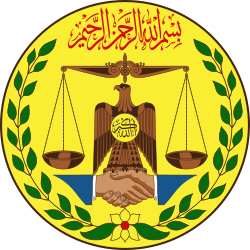Elections
2010 presidential elections
Ahmed Mohamed Mohamoud “Silanyo” (Kulmiye) defeated incumbent Dahir Riyale (UDUB). President Riyale had publicly announced that he would step down and hand over power peacefully if he was defeated. [10]
President Riyale’s third term of office should have expired on 15 May 2008. The election that was to have been held at least one month earlier had been rescheduled six times. The last delay was ostensibly caused by the unilateral decision of the previous National Electoral Commission (NEC) not to use a voter registration list tainted by massive, systematic fraud. This prompted both opposition parties to declare an election boycott and suspend cooperation with the commission. The crisis was defused in September 2009, when the parties, under strong external and internal pressure, accepted a memorandum of understanding (MOU) agreeing to a change in the NEC’s leadership and composition. [11]
2024 presidential elections
In the next elections, the Somaliland National Electoral Commission (NEC) announced on November 19, 2024, that Abdirahman Mohamed Abdullahi (also known as “Irro”) of the Waddani Party won the presidency with 63.92% of the vote. Incumbent Muse Bihi Abdi (Kulmiye Party) received 34.81%, while third-party candidate Faysal Ali Warabe (UCID Party) garnered around 0.74%. [17]
The election had a 53% voter turnout, with around 648,000 of the 1.2 million registered voters participating. [18]
The Supreme Constitutional Court formally validated these results, confirming Irro’s victory along with that of his running mate, Mohamed Ali Abdi Mohamud, for vice president. The Court similarly approved Waddani as the leading political party, followed by Kulmiye and the newcomer KAAH Party replacing UCID in official party status for the next decade [19]
This page is based on this
Wikipedia article Text is available under the
CC BY-SA 4.0 license; additional terms may apply.
Images, videos and audio are available under their respective licenses.





